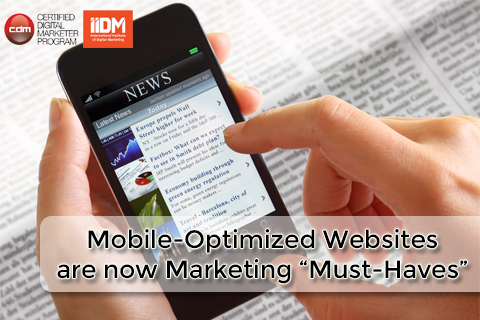Google – the internet mega-crawler, trendsetter, and overall search engine gatekeeper – has done it again. In a recent announcement, the web giant said it’s releasing a new algorithm which will put more weight on mobile-friendliness for search rankings. Simply put, a website that is not mobile-optimized will not rank well in searches.
Why does this matter?
“The fact is if you aren’t optimized for mobile you’re ultimately losing sales,” writes Ian Mills, Co-Founder and CEO of Magicdust. According to a study conducted by MoPowered, 30% of mobile shoppers will abandon transaction purchases if it wasn’t optimized for mobile. For instance, when a consumer searches for a restaurant on their smartphone, chances are they’re either hungry at that given time or within the proximity. Hence, if your site provides the information they’re looking for in a manner that’s convenient and quick for them, it may eventually lead to sales.
Sites optimized for mobile will rank better in Google
In Google’s 2013 algorithm update Hummingbird, the search engine provider emphasized that the future of search is mobile and anyone who does not join the bandwagon will surely get left behind. That future is now. On April 21st, 2015 Google will be launching a Mobilegeddon that will challenge all business pages found in the World Wide Web. If you’re not mobile-optimized, you’re not search ranking optimized.
“With one-quarter of global web searches conducted on mobile devices by over a billion users worldwide, mobile websites are just as important, if not more so, than desktop versions,” says Ian Mills in his recently published article on Huffingtonpost.com
How to beat Mobilegeddon?
Jeff Saez, Managing Director of NuWorks and lecturers for the Certified Digital Marketer Program, reiterates the trends in mobile websites in CDM’s class What Works in Websites.
“Responsive website design, the one that adapts to a device’s screen size, will be mandatory. And so is icon-based card design that looks like mini posters. Bigger images are better so you need to invest in photos as well as videos.”
Above all this, Mills says websites should load in less than three (3) seconds, should be easy to read, easy to navigate, and provide a good user experience.
Jeff adds, “In a mobile device, once you make your viewers “pinch” to read something better, you tend to lose them.”
Learn how to make your website click-worthy from Jeff Saez . Join the CDM Acceleration Program of the Certified Digital Marketer Program.
To register, log on to imadigitalmarketer.com.
